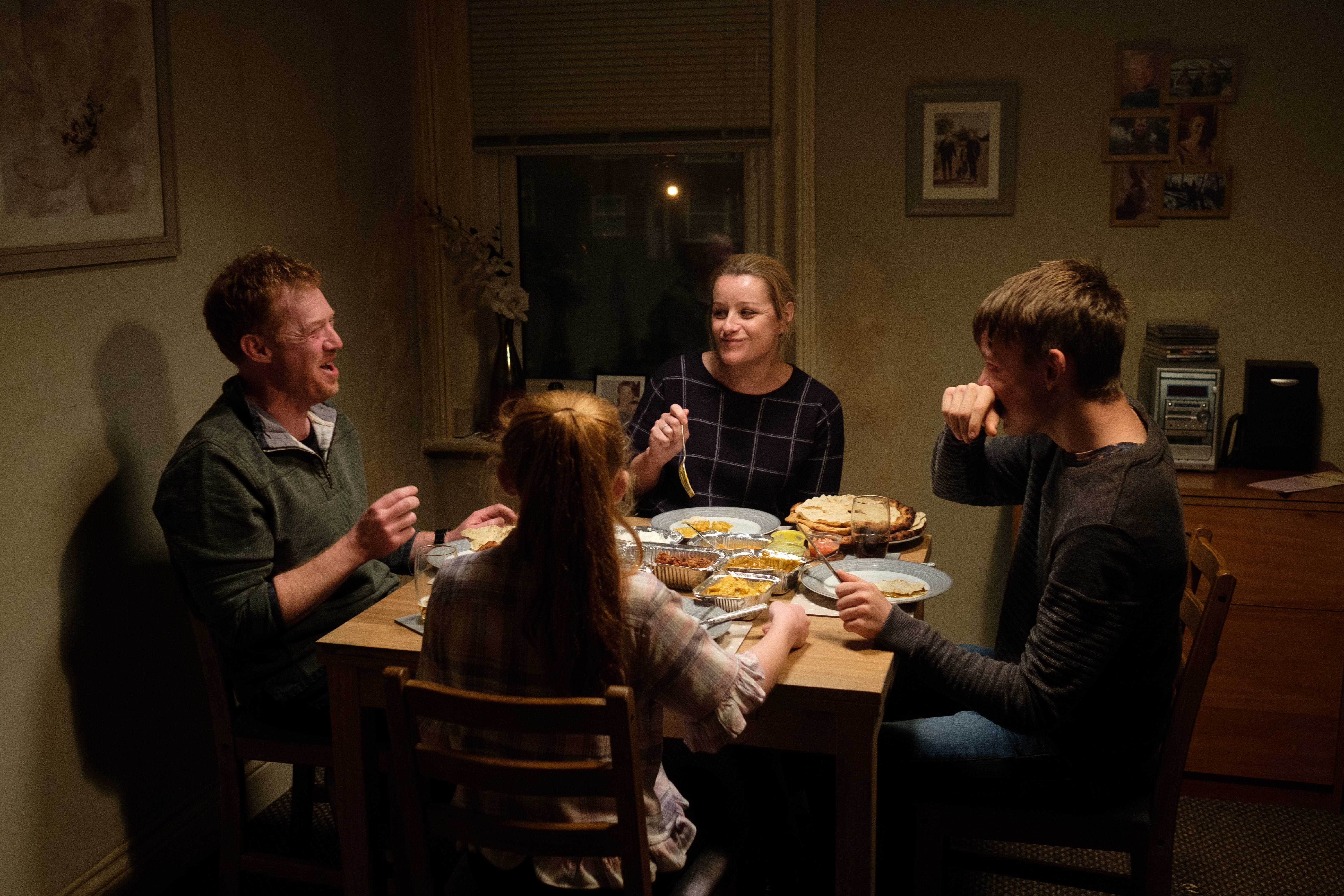
The idea of the “gig economy” has become a ubiquitous part of political and social discourse, but it’s perhaps not easy to fully understand its effects unless you’re part of it. Sorry We Missed You, director Ken Loach’s new film, understands it on a cellular level.
Set and filmed in Newcastle Upon Tyne in northern England, it follows the Turners, a middle class family struggling to stay afloat. We first meet Ricky (Kris Hitchen), the patriarch, who was forced out of construction after the market crash and has struggled to find work since. Now, poised to become a delivery van driver for a company called PDF, we can tell from the opening scene, where his new boss Maloney (Ross Brewster) spews corporate nonsense, that this job won’t be everything it promises.
Though Maloney raves about the autonomy Ricky will be as a “franchise” owner, it becomes sickeningly clear how much this business exploits its workers when Maloney explains that Ricky will have to buy his own van to avoid being charged essentially half of his daily salary to use the company’s. Unfortunately, Ricky also doesn’t have the money to put a down payment on a van unless they sell the car his wife Abby (Debbie Honeywood) uses to travel to her in-home care jobs each day. As viewers, we know selling that car is a recipe for disaster, but the Turners don’t know they’re in a movie and Paul Laverty, who wrote the screenplay, deftly sets the stakes for everything that follows just through that van drama.
Speaking of the script, in a lighter film, Maloney’s dialogue could feel almost like parody, but Brewster’s performance is so grounded that it makes it feels as if we could be watching a documentary and every performance and choice reinforces that realism. Joanne Slater’s costuming feels natural and of the moment while not being too fashionable and Ferguson Clegg’s production design makes the surroundings feel lived-in and common. Robbie Ryan’s cinematography is similarly unobtrusive, lending the film a cinema verité quality. The shots are lit realistically and the camera often placed farther from the characters, as if the crew is just following them as they go about their days.
That said, the actors are perhaps most responsible for making the Turners’ story feel real. Hitchen is beaten down but clearly a good guy trying to do the best for his family. Rhys Stone as the brooding teenage son, Seb, talks and even moves with the passive aggression of a boy pretending to hate his father to hide how much he loves him. Katie Proctor as the youngest Turner, Liza Jane, feels mature and uncharacteristically self-sufficient for her age in a way that feels fitting for a girl growing up in a home with two working parents. Perhaps most crushing of all, though, is Abby, a genuinely empathetic and patient person who radiates love for her family and clients alike.
One of Honeywood’s best scenes comes as she waits at a bus stop while talking on the phone with her supervisor about a older female client who just attacked her. Rather than be angry at the woman, Abby is frustrated that neither her employers nor the woman’s family will get the woman the care she needs and with everything going on in her home life too, it’s no wonder she starts to cry. Honeywood is remarkable in the scene, but just as moving is that another woman waiting at the bus stop (Christine Beck) goes from eyeing Abby warily to asking if she’s alright. It’s a surprising and cathartic moment of empathy and emphasizes that what Loach is examining through this story of a family caught in the grind of a gig economy is the way that life slowly strips away human dignity.
Abby’s clients (all played with such sincerity that it’s almost surprising to learn they aren’t playing themselves) constantly talk about their shame at losing their autonomy and while they aren’t direct victims of the same systems hurting the Turners, both sets of people are dehumanized by their circumstances. The better Ricky becomes at his job, the more he’s forced to work like a machine and the worse his home life becomes. As Ricky and his family start to fall apart, it’s easy to wonder if Loach’s film turns into tragedy porn. Admittedly, there are moments–especially in the last act–when the emotional drama seems overwritten, but the reason the film can push its plot to extremes it that the set up is so realistic. The Turners may be inordinately unlucky, but what happens to them only serves to emphasizes how tenuous the gig economy leaves its workers’ finances. Lucrative as Ricky’s delivery job potentially seems, it only works if everything goes perfectly.
The Turners, just like any real family, aren’t perfect, so the delivery job and the economy that allows it are built to keep them struggling, always just one good run away from financial security. Sorry We Missed You isn’t about personal misfortune, but understanding that no amount of work on one person’s part is enough to succeed in businesses that force its workers to fail. And as hard as it may be to watch that when the world is already so dark, especially in this election year, it’s also an important reminder of what we’re fighting to change.

